About
The “Biomimetic Systems for Cell Engineering” group is a multidisciplinary research group focussing its research activities on the development and application of new artificial systems that mimic tissue micro and nanofeatures for biomimetic in vitro assays.
The use of more biomimetic and complex 3D models in in vitro assays is now a hot and extremely relevant topic.
“Flat biology” results are questioned when being transferred to in vivo, while the pressure to decrease animal testing continues increasing. As a group of engineering providers working in the biotechnological field, we see these issues as both a challenge and a clear opportunity to impact the field with novel technological solutions. Our research ambition will be to develop better engineering tools to help in the development of organotypic cell culture models, easy to implement in daily cell culture routines, so they have a real and meaningful impact in the biotechnological arena and, therefore, will impact applications in basic cell research, disease modelling and regenerative medicine.
Along with this line, we are working towards the following objectives: (i) to engineer and validate a complex in vitro model of small intestinal epithelium, (ii) to validate a novel in vitro model of engineered cardiac tissue and (iii) to engineer a novel vessel-on-chip to reproduce the tumor metastatic environment. To carry out our research we employ cutting edge biofabrication technologies such as bioprinting and novel biological tools such as organoids.

Staff
Projects
| INTERNATIONAL PROJECTS | FINANCER | PI |
|---|---|---|
| GUT3D-PLATE · Ready-to-use cell culture plates for gut 3D models (2020-2022) | European Commission, ERC-PoC | Elena Martínez |
| COMIET · Engineering Complex Intestinal Epithelial Tissue Models (2015-2022) | ERC Consolidator Grant | Elena Martínez |
| BRIGHTER · BIOPRINTING BY LIGHT-SHEET LITHOGRAPHY (2019-2023) | European Commission FET Open | Elena Martínez |
| PRIVATELY FUNDED PROJECTS | FINANCER | PI |
|---|---|---|
| PROMISE · BioPrinted hydROgel MicrofluIdicS to mimic patient-specific tumor mEtastatic microenvironment (2020-2023) | Obra Social La Caixa, Health Research Call for Proposals | Elena Martínez |
| FINISHED PROJECTS | FINANCER | PI |
|---|---|---|
| ENGUT · Engineered models of intestinal epithelial tissue: assessing in vivo-like functional properties (2019-2020) | Bist Ignite Program | Elena Martínez |
| INDUCT Dispositivo de multitejido intestinal para la monitorización de la comunicación entre epitelio y músculo en condiciones patológicas (2018-2020) | MINECO | Elena Martínez |
| COMIET Engineering Complex Intestinal Epithelial Tissue Models (2015-2020) | ERC Consolidator Grant | Elena Martínez |
| GLAM Glass-Laser Multiplexed Biosensor (2015-2019) | European Commission (H2020) – PHC-10-2015 | Elena Martínez |
| MINAHE5 (Bio)funcionalización de Micro- y NanoHerramientas en Suspensión para Aplicaciones en Células Vivas (2015-2017) | MINECO | Maria Lluïsa Pérez |
Publications
Check for more detailed information on the outputs of the Group at IBEC CRIS portal.
Publications list:
Equipment
Micro and nanofabrication techniques:
- Biomolecule gradients produced by microfluidics
- Large-area nanostructured polymer surfaces produced by diblock copolymers
- 3D microstructures on hydrogel materials
- Mini-bioreactor for 3D cell culture
Characterization techniques:
- Surface Plasmon Resonance (SPR) measurements on polymer materials
- Atomic Force Microscope (AFM) expertise
- Optical Microscopes (white light/epifluorescence)
- Focused Ion Beam (FIB) / Scanning Electron Microscopy (SEM) of biological specimens
Equipment:
- Biological safety cabinet (class II)
- High precision syringe pumps
- Peristaltic pumps
- Access to the Nanotechnology Platform (IBEC Core Facilities): equipment for hot embossing lithography, polymer processing and photolithography, chemical wet etching, e-beam evaporation and surface characterization (TOF-SIMS)
- Access to the Scientific and Technological Centers (University of Barcelona): equipment for surface analysis (XPS, AFM, XRD) and microscopy techniques (SEM, TEM, confocal)
- PRUSA i3MK3S (FDM printer)
- Phrozen Shuffle XL (DLP-SLA printer)
- SOLUS (DLP-SLA printer)
Collaborations
- Prof. Ángel Raya / Dr. Samuel Ojosnegros
Center of Regenerative Medicine in Barcelona (CMRB), Barcelona - Prof. Eduard Batlle
Institut de Recerca Biomédica (IRB), Barcelona - Prof. Pablo Loza
Institut de Ciències Fotòniques (ICFO), Castelldefels (Spain) - Dr. Javier Ramón, IBEC
- Dr. Elisabeth Engel, IBEC
- Prof. Raimon Jané, IBEC
- Prof. Josep Samitier, IBEC
- Prof. Javier Santos, Dra. Maria Vicario
VHIR, Barcelona (Spain) - Dr. Bruno Sarmento
i3S – Instituto de Investigação e Inovação em Saúde, Porto, Portugal - Dr. Sonia García-Blanco
University of Twente, Enschede (The Netherlands) - Dr. Fabio Variola
University of Ottawa (Canada) - Dr. Daniel Riveline
ISIS/IGBMC, Strasbourg (France) - Dr. Matthew Dalby
University of Glasgow (UK) - Prof. Jordi Martorell
Institut de Ciències Fotòniques (ICFO), Castelldefels (Spain) - Prof. José Antonio Plaza
CNM-CSIC, Barcelona - Dr. Francesc Mitjans
LEITAT, Barcelona - Francesco Pampaloni
Buchmann Institute for Molecular Life Sciences (Frankfurt) - Dra. Elena Élez
VHIO
News
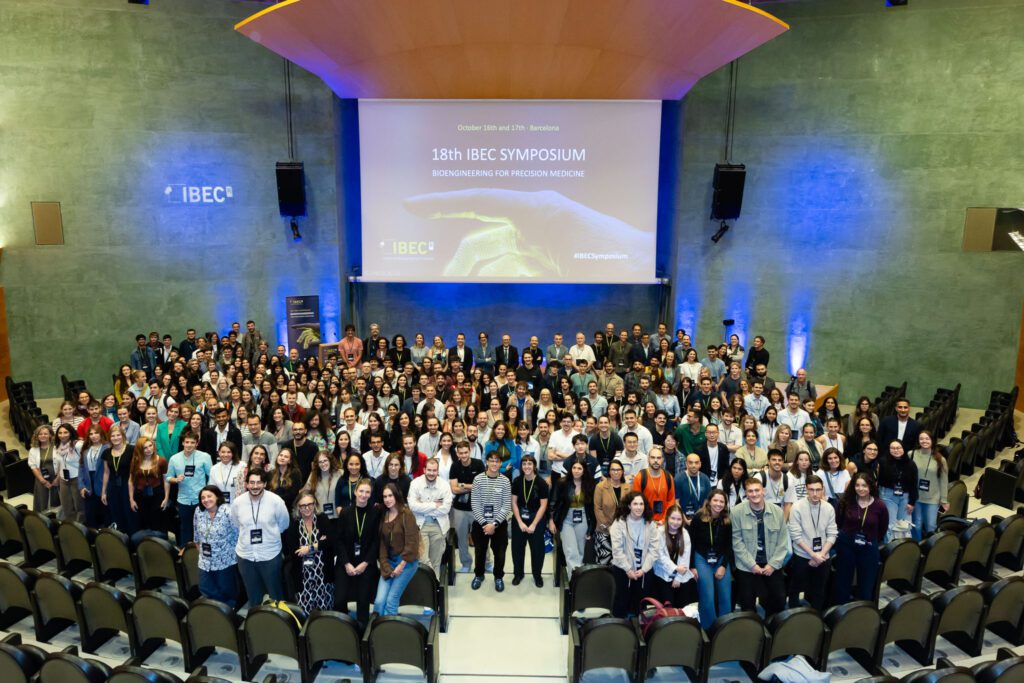
Bioingeniería para la medicina de precisión en el 18º Simposio del IBEC
El 18º Simposio anual del IBEC se centró en ‘Bioingeniería para la Medicina de Precisión’, una de las áreas clave de aplicación del IBEC. Fueron cerca de 300 las personas asistentes al evento, entre las que se encontraba personal investigador local e internacional. Un ambiente multidisciplinar en el que expertos y expertas de otros centros y la propia comunidad del IBEC tuvieron la oportunidad de presentar sus proyectos e intercambiar conocimiento.
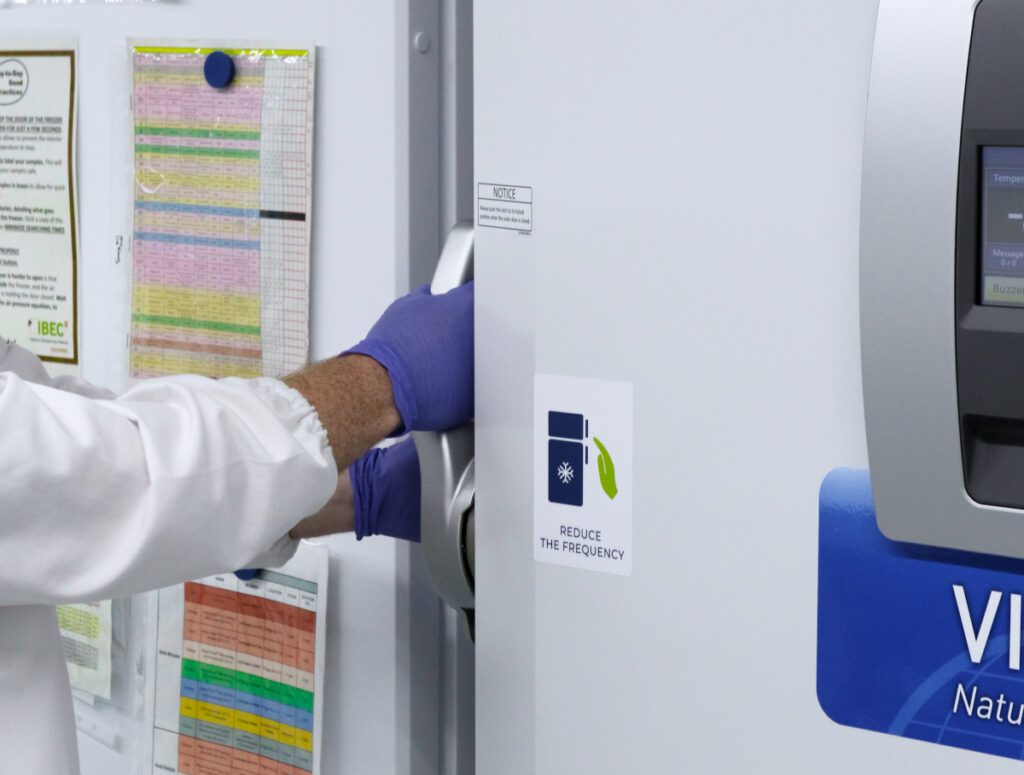
Siete laboratorios adicionales del IBEC alcanzan el nivel superior en la certificación My Green Lab
Siete grupos de investigación más del Instituto de Bioingeniería de Cataluña (IBEC) han sido certificados por My Green Lab, alcanzando la calificación más alta, el Green Level, por prácticas de laboratorio sostenibles. Con estas incorporaciones, el 70% de los laboratorios del Instituto ya están certificados.
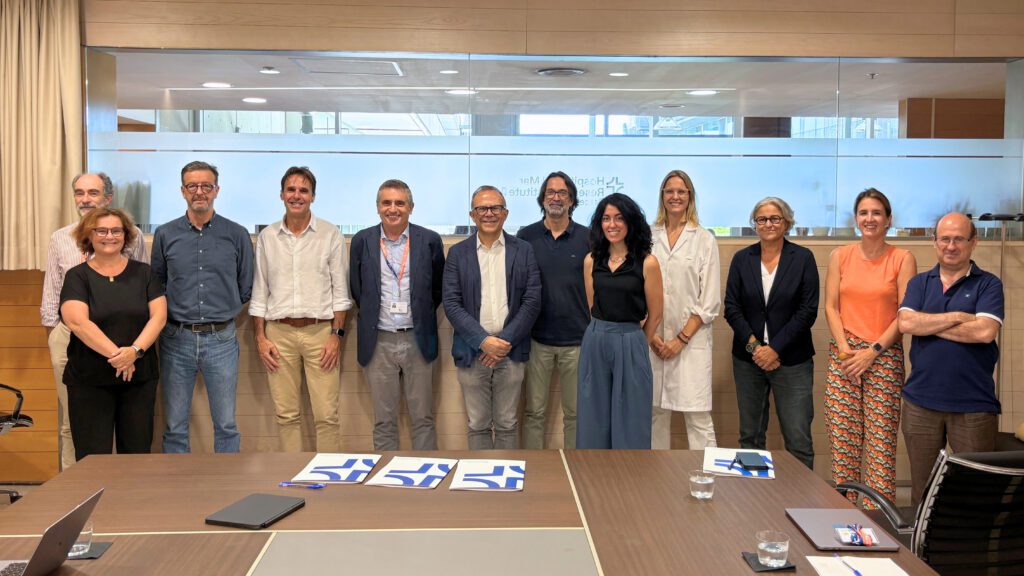
El IBEC y el Hospital del Mar formalizan una nueva etapa de colaboración
Hoy ha tenido lugar la primera jornada de colaboración entre el Instituto de Bioingeniería de Cataluña (IBEC) y el Instituto de Investigación del Hospital del Mar, celebrada en el Parque de Investigación Biomédica de Barcelona (PRBB). El encuentro ha sido una oportunidad para compartir líneas de investigación, explorar áreas de trabajo conjuntas y consolidar una alianza estratégica con la firma de un convenio formal de colaboración entre el IBEC, el Hospital del Mar y el Instituto de Investigación del Hospital del Mar.
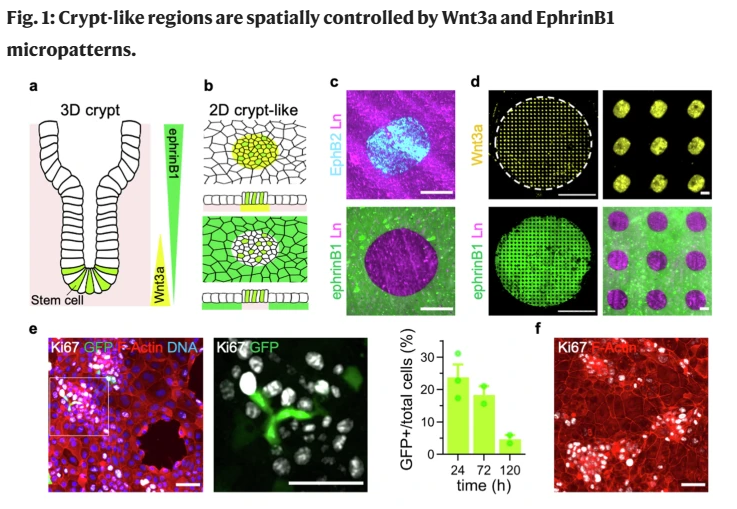
Madri+d: Impresión de proteínas para recrear en el laboratorio
Investigadores del grupo de Sistemas Biomiméticos para Ingeniería Celular del IBEC han desarrollado un método innovador para controlar la formación de criptas y vellosidades intestinales mediante impresión de proteínas por … Read more
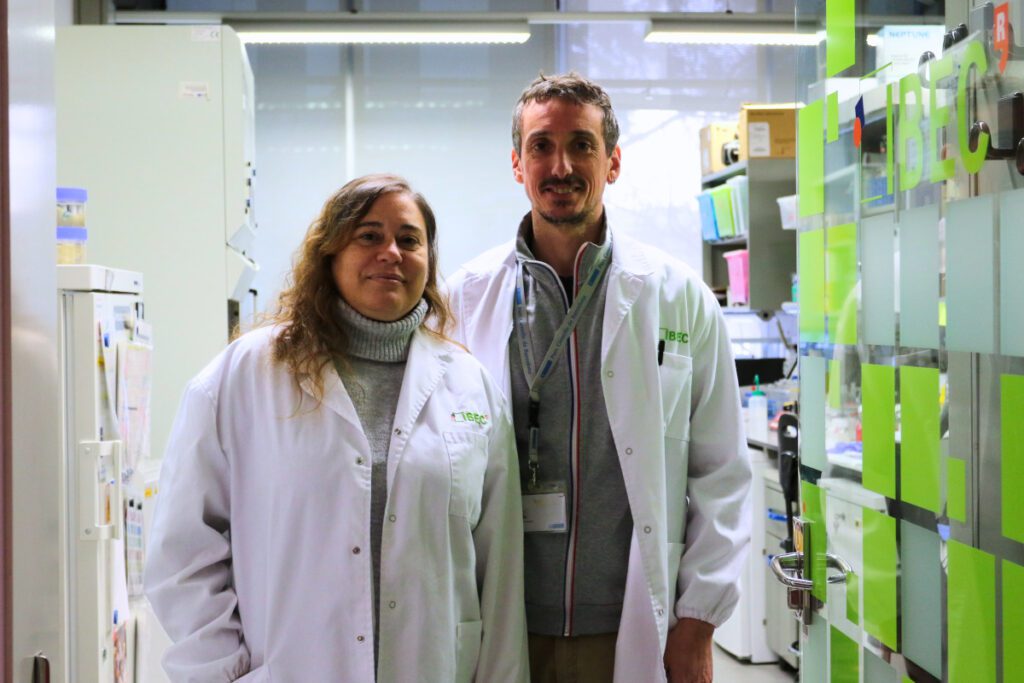
Impresión de proteínas para recrear el intestino en el laboratorio
An IBEC-led study describes the development of an innovative method to control the formation of crypt-like structures and villi in the intestine using a contact protein printing technique. This model will make it possible to study in detail key processes such as cell regeneration or changes associated with diseases such as cancer and chronic inflammatory disorders.
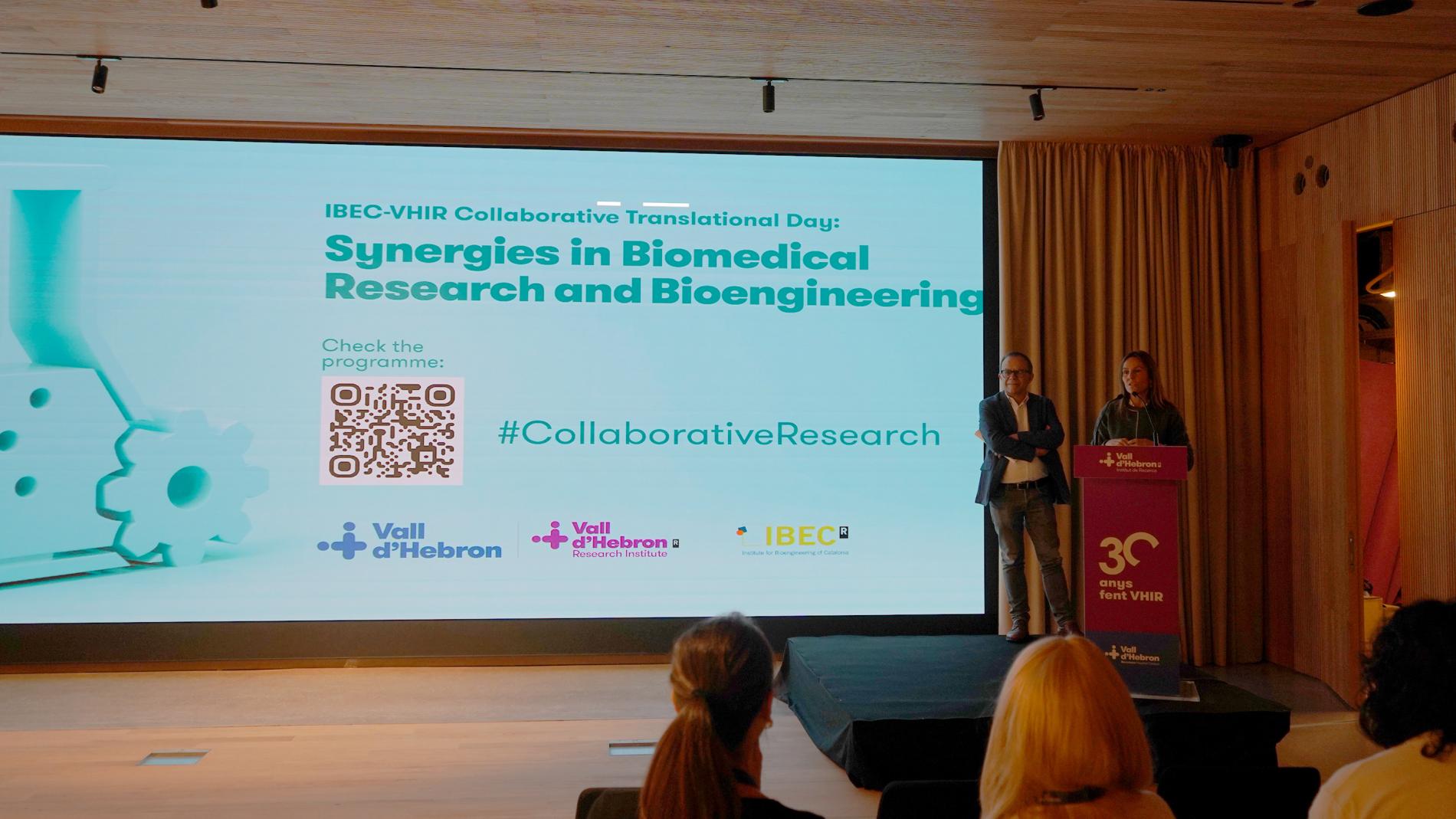
El IBEC y el VHIR celebran una jornada de colaboración para fomentar las sinergias
La 1ª Jornada Colaborativa Traslacional entre el Vall d’Hebron Instituto de Investigación (VHIR) y el Instituto de Bioingeniería de Cataluña (IBEC), celebrada el 21 de noviembre, ha sido una oportunidad para conocer proyectos y líneas de investigación de ambas instituciones y promover la interacción entre los profesionales.
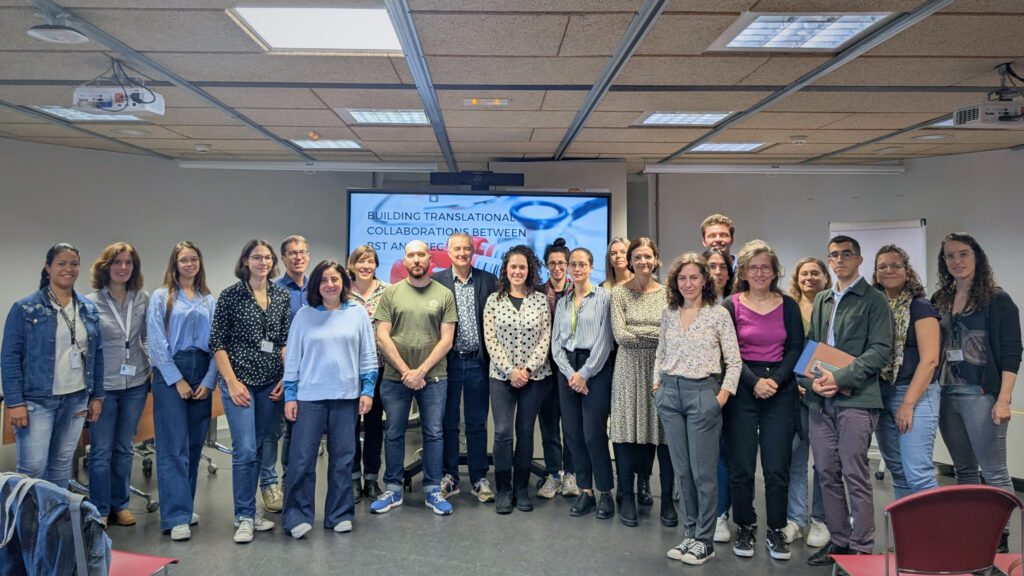
El IBEC y el Banco de Sangre y Tejidos fortalecen lazos con una jornada de colaboración traslacional
El IBEC y el Banc de Sang i Teixits han celebrado una jornada para explorar nuevas colaboraciones en bioingeniería y medicina traslacional. El encuentro, celebrado ayer en el IBEC, destacó proyectos innovadores, presentó un programa de doctorado conjunto y reforzó la conexión entre investigación biomédica y aplicaciones clínicas.
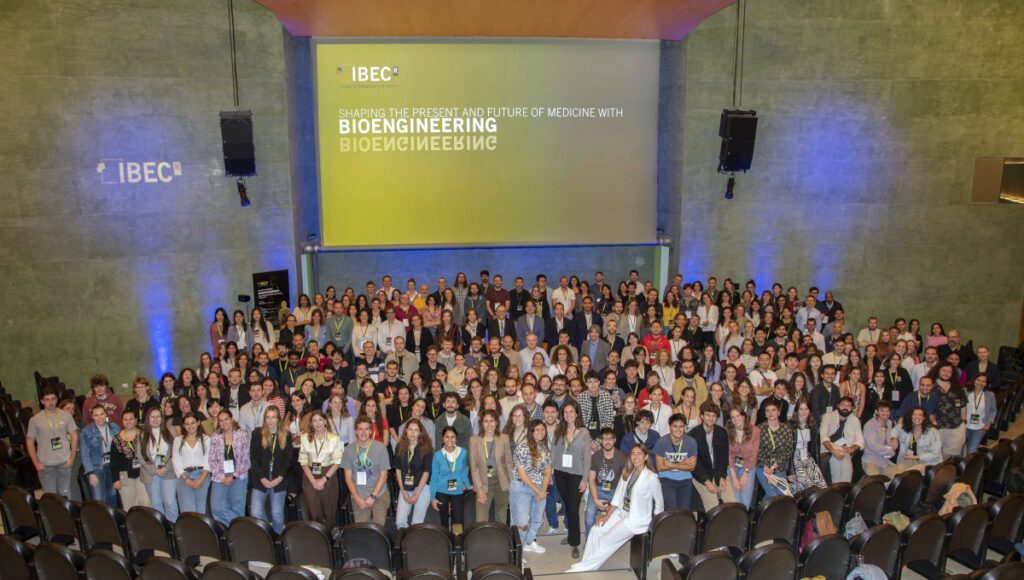
Bioingeniería para las terapias emergentes y avanzadas en el 17º Simposio del IBEC
IBEC’s 17th Annual Symposium focused on ‘Bioengineering for Emergent and Advanced Therapies’, one of IBEC’s key application areas. Around 300 people attended the event, including local and international researchers. It was a multidisciplinary environment in which experts from other centres and the IBEC community itself had the opportunity to present their projects and share knowledge.
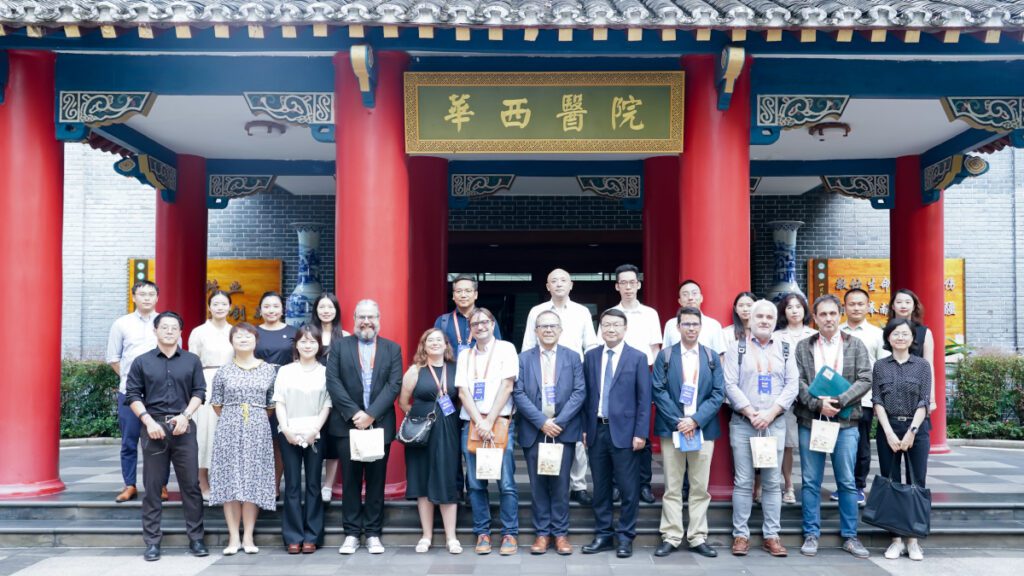
El IBEC y el Hospital West China refuerzan su colaboración en medicina de precisión
La semana pasada se celebró en Chengdu, China, la segunda Conferencia de Medicina de Precisión IBEC-WCH. Se trata de una alianza entre el Instituto de Bioingeniería de Cataluña (IBEC) y el Hospital West China (WCH) de la Universidad de Sichuan, que busca impulsar la colaboración científica entre ambos países.

Nueva biotinta para sintetizar piel humana mediante bioimpresión 3D
La demanda de tejidos de piel sintetizados en laboratorio ha aumentado tanto para aplicaciones in vitro como in vivo, siendo uno de los puntos clave del proceso la correcta elección … Read more
Jobs
Predoctoral researcher at the Biomimetic systems for cell engineering Research Group (Project BIOCHIC)
Ref: FPI_EM // Deadline: 29/10/2025
Scientific business developer at the Biomimetic systems for cell engineering Research Group
Ref: BD-EM // Deadline: 03/10/2025
Laboratory Technician at the at the Nanobioengineering Group
Ref: LT-EM // Deadline: 4/7/2025
Research Assistant at the Biomimetic systems for cell engineering Research Group
Ref: RA-EM // Deadline: 21/06/2025
Laboratory Assistant at the Biomimetic systems for cell engineering Research Group
Ref: LA-EM // Deadline: 20/06/2025
Research Assistant at the Biomimetic Systems for Cell Engineering Research Group
Ref: RA-EM //Deadline: 25/02/2025
Senior researcher at the Biomimetic Systems for Cell Engineering Research Group (Ref. SRR_EM)
Ref: SRR_EM // Deadline: 31/10/2023
Research Assistant at the Biomimetic systems for cell engineering Research Group (RA_EM)
Ref: RA_EM // Deadline; 07/08/2023
Postdoc at the Biomimetic systems for cell engineering Research Group (PD_EM)
Ref: PD_EM // Deadline: 04/08/2023
Laboratory technician at the Biomimetic Systems for Cell Engineering Research Group (LT_EM)
Ref: LT_EM // Deadline 10/02/2023


 ibecbarcelona.eu
ibecbarcelona.eu